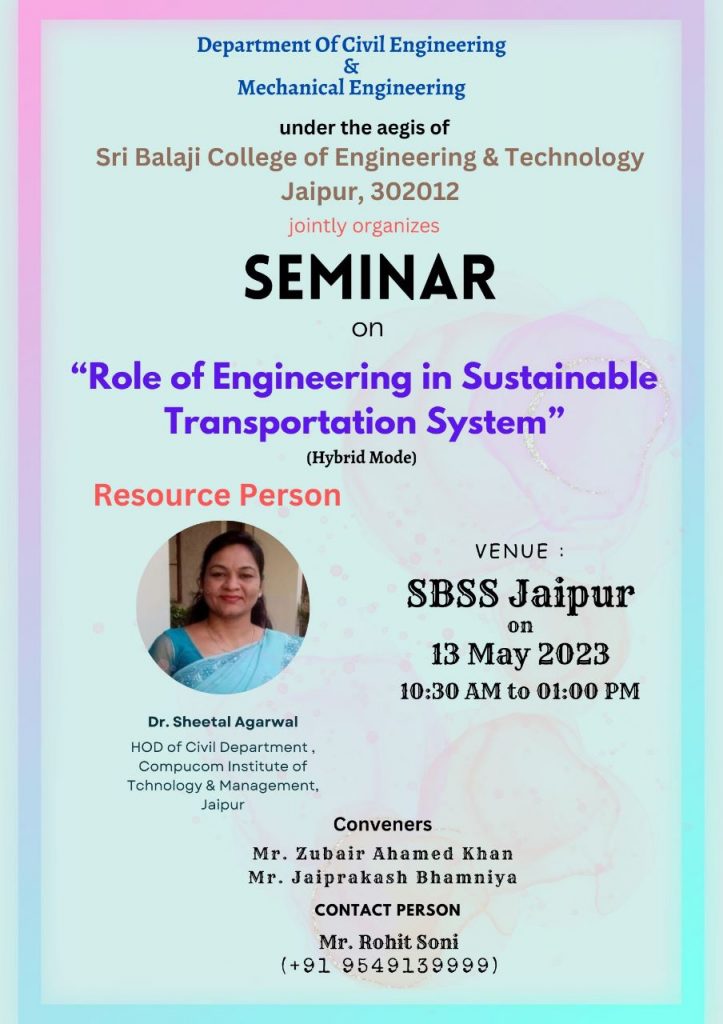
Overview–
The role of engineering in sustainable transportation systems is critical in achieving sustainable development goals related to transportation. Sustainable transportation systems aim to reduce the environmental impacts of transportation while maintaining the efficiency, safety, and affordability of transportation services.
The scope of the role of engineering in sustainable transportation systems includes the design, development, and implementation of new technologies, systems, and infrastructure to reduce the environmental impact of transportation. This includes the development of alternative fuels and propulsion technologies such as electric vehicles, fuel cells, and hybrid systems, as well as the development of sustainable transportation infrastructure such as bike lanes, pedestrian walkways, and public transportation systems.
The objectives of the role of engineering in sustainable transportation systems are to:
- Reduce greenhouse gas emissions: Transportation is a significant contributor to global greenhouse gas emissions. The objective of engineering in sustainable transportation is to reduce these emissions through the development and implementation of new technologies and systems.
- Promote energy efficiency: Engineering in sustainable transportation systems aims to improve the energy efficiency of transportation systems to reduce energy consumption and costs.
- Enhance safety: Sustainable transportation systems aim to enhance the safety of transportation through the development of new technologies and systems that reduce the risk of accidents.
- Increase accessibility: Sustainable transportation systems aim to increase accessibility to transportation services for all members of society, including those with disabilities, the elderly, and those in low-income communities.
- Improve air quality: Sustainable transportation systems aim to improve air quality by reducing emissions from transportation sources
